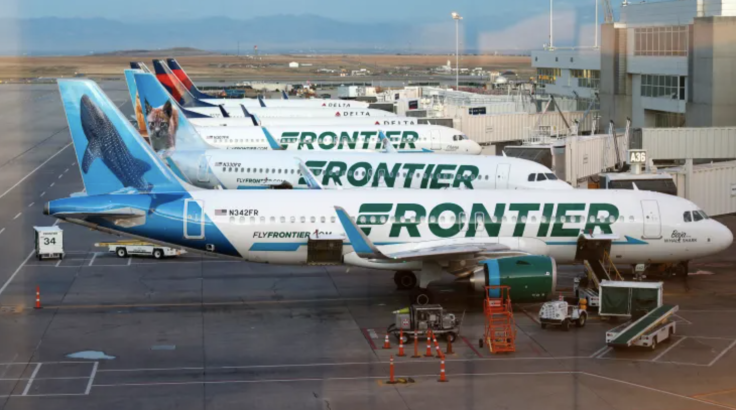Frontier Airlines CEO Warning Predicts Fewer Local Flights: Is The Carrier In Financial Trouble?
The airline recorded a $70 million net loss in Q2 of 2025

Frontier Airlines passengers could soon have fewer choices when booking domestic flights, as the company's chief executive warns of looming cuts across the US airline industry.
Barry L. Biffle, CEO of Frontier, issued a blunt statement during the company's second-quarter earnings call: 'There's going to continue to be reductions in capacity in this industry.' In other words, airlines – including Frontier – are likely to reduce the number of planes flying within the United States.
The reason is simple: many domestic routes are currently unprofitable. 'If you take out your code share, take out your international flow... the domestic is not making money. And that's because there is too much supply relative to demand,' Biffle explained.
Is Frontier In Financial Trouble?
Frontier, the eighth-largest airline in the US in 2024 according to Air Service One, reported $929 million in revenue for the second quarter of 2025. Despite this, the airline recorded a $70 million net loss. Biffle stressed that the results were within expectations and that the company still aims to turn a profit in 2026.
The airline faced headwinds including severe weather disruptions and air traffic control delays. However, it maintained operational efficiency, helped by a modern fleet – much of it consisting of fuel-efficient Airbus A320neo family aircraft. The company recently took delivery of three A321neos and launched 35 new routes, with an emphasis on expanding services in the Eastern and Midwestern states.
Key performance figures show cost per available seat mile (CASM) rose to 9.73 cents, while revenue per available seat mile (RASM) dipped slightly to 9.01 cents. Frontier is aiming for mid-to-high single-digit RASM growth in the third quarter, aided by an expected improvement in the domestic supply-demand balance.
A Broader Industry Trend
Biffle's warning is not isolated. United Airlines CEO Scott Kirby recently echoed the sentiment, noting that many carriers are flying routes that lose money. "I can find... a double-digit percentage of their route network that loses money," Kirby said. His prediction: airlines will eventually be forced to stop operating loss-making services.
If both executives are correct, passengers could face fewer flight options as early as next year, particularly on less popular travel days or at off-peak times. Spirit Airlines and other carriers have already begun trimming such services.
Impact on Travellers
For passengers, the message is clear: be prepared for fewer scheduling choices in 2026 and beyond. Routes that have long been convenient, especially for those who prefer quieter travel periods, may disappear altogether. When booking, travellers could find their preferred departure times no longer available, forcing them to adapt to tighter timetables, higher fares on remaining flights, or even less direct connections. For those who value flexibility and choice, this could mark a noticeable shift in the flying experience.
While Frontier's leadership insists the airline is well-positioned for a return to profitability, its CEO's capacity warning signals a shift in strategy for the entire industry. Airlines appear to be prioritising sustainability and profitability over route quantity, meaning travellers may need to plan further ahead – and perhaps be more flexible – in the years to come, especially during peak seasons or on popular holiday routes.
© Copyright IBTimes 2025. All rights reserved.





















